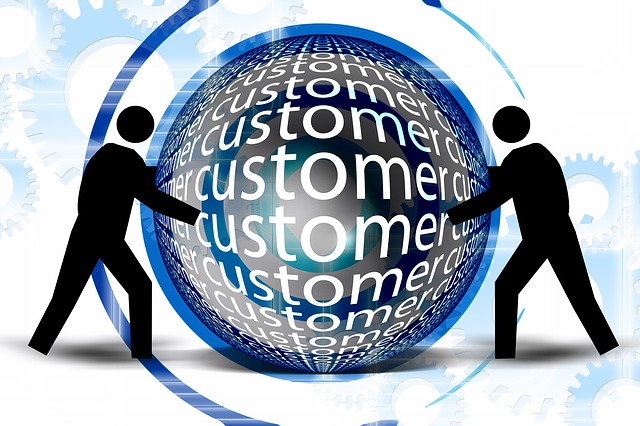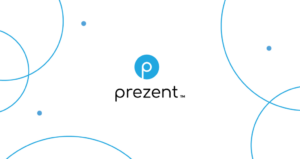A conversation with an expert about how the B2C spectrum can embrace Machine Learning run SaaS based Customer Relationship Management (CRM) software in the most significant way.
One of the fallouts of pandemic induced growth is a steep rise in screen time around the world. From a business point of view, as customers spend more time online, they also tend to complain more.
This has become one of the reasons that post-pandemic B2C businesses are investing on IT and relying heavily on data to provide unmatchable Customer Experience (CX) with the help of SaaS-based product offerings, which are enabled with advanced Machine Learning capabilities.
Read more: 4 Challenges SaaS Startups Face and Their Solutions from a Thought Leader
With the help of Customer Relationship Management (CRM) software, companies can develop a comprehensive user onboard process and additional features that keep customers coming back. Effective CRM strategies include customer database management and self-service to determine customer needs and automate the response immediately.
It allows companies to track real-time updates on customer data and analysis reports based on their purchase behavior pattern that firms can use effectively to turn each interaction into a delightful CX. The more the customer engages, the better understanding they have of the product or service a company is offering.
So, what makes an enterprise-grade SaaS company stand out in the B2C CRM space?
The Tech Panda had a chat with Sheshgiri Kamath, CEO and Co-founder of Kapture CRM, an enterprise-grade SaaS-based support automation platform that streamlines the customer support process through its advanced Machine Learning capabilities.

Sheshgiri Kamath
The key to success in this space is how you use the features as a medium to solve customer problems, how scalable you are, how customisable you are, and how agile you are as a platform
Kapture offers a seamless customer support automation platform that provides intelligent and contextual responses, owing to which helpdesk agents are able to respond faster and are always backed by ample resources and information to offer delightful customer experiences.
Kamath says the B2C spectrum is embracing SaaS in the most significant way.
“Today, in a virtual world, the queries and complaints from customers are on the rise because of increased screen time and gadget use. An enterprise grade SaaS company helps facilitate ticket resolution by bringing every little complaint from every possible customer platform, email, phone, social media and others, on one unified dashboard,” he says.
The CRM abundantly takes care of the B2C space by intelligently resolving tickets through automation and ‘knowledgeable’ agents.
In an era where no-code platforms are taking SaaS to the next level, being ahead of the curve is not just important but has become a necessity. Kamath also advises on what to keep in mind to get started in the SaaS-driven business model.
“Any platform that is bound by features cannot scale in the enterprise SaaS ecosystem. The key to success in this space is how you use the features as a medium to solve customer problems, how scalable you are, how customisable you are, and how agile you are as a platform,” he says.
“Emphasising on scalability is going to be one of the key differentiators. I would also suggest to entrepreneurs to consider first principles when building a SaaS oriented business whilst being on the lookout for scenarios in the product development phase,” he adds.
Real Customer Connections Via B2C CRM Software
B2C businesses usually have a bigger customer base compared to the B2B businesses to keep track of individual customer experience. With a paradigm shift in consumer behavior, especially with the onset of the pandemic, personalisation has come to the forefront, says Kamath.
“And definitely, to establish real connections with the consumer base, it is required that businesses incline to Customer Profiling,” he says.
Read more: How can you Craft Your SaaS Sales Strategy to Sell to Small Businesses?
Customer Profiling helps agents in understanding the unique nature and preferences of a particular customer to provide faster resolutions, thereby strengthening long-term brand-customer relationship.
However, tracking the history and preferences of every individual customer can be a colossal task. According to Salesforce, the global CRM leader, providing personalised messaging for every customer is far from easy, “one that would be functionally impossible without computer assistance.”
The CRM Software and its data, therefore, enable businesses to forecast their possible requirements through Machine Learning to provide the best customer support.
How Machine Learning is Advancing the B2C CRM Sector
Today, Machine Learning is a crucial component of the B2C CRM software. Machine Learning enabled tools are persistently being designed to add intelligence to the customer support landscape, platform integration, purchase history, customer buying trends, data recognition, query solution forecast, and varied other benefits. Machine Learning is seen enhancing the CRM factors as well as the agent’s task, in a streamlined manner.
Its intelligence helps the customer to help themselves without any additional intervention
Further, Kamath says they are also seeing customers prominently utilise the self-serve feature that comes with a CRM software, which is backed by Machine Learning.
“Its intelligence helps the customer to help themselves without any additional intervention. The algorithm very well understands the customer query to provide a feasible solution after examining the customer data and his journey,” he explains.
The Mark of a Good B2C CRM Software
Selecting a suitable B2C CRM Software is not always easy, because more software is available for B2B in the market.
“Two brands falling in the same category, selling similar products might be absolutely great, but what determines the brands’ genuine worth and customer centricity is the Customer Experience that people tend to go back with,” says Kamath, as he gives a few tips on how to go about it.
“A good B2C CRM Software should be able to resolve problems and not just queries. With products or services, there will be customer complaints as well, it is a given.” he says.
A good B2C CRM Software should be able to resolve problems and not just queries
“On the agent’s end, the CRM should be his/her best companion, automating tasks, learning and deciding on the the problem at hand using a 360-degree approach, integrating queries from every channel on one platform. On the customer’s end, it should be able to serve a personalised brand experience through support strategies,” he adds.
There are multiple CRM software in the market doing a good job, with Zoho, Hubspot, Freshsales, Zendesk Sell, and Salesforce at the top.
A CRM product should swear by three core strengths, says Kamath, namely, simple usage, contextual by nature, and intelligent.
“A SaaS platform is more than just a helpdesk. A support automation platform should be easy and simple to operate,” he says.
Easy Implementation
The implementation process is another thing that should not be overlooked, he says. Today, deployment of a CRM Software takes around six months to complete, whereas businesses are on the lookout for easily implementable platforms to delight their customers.
Reducing the implementation cycle can make a huge difference too.
“Kapture understands the complexity of it and this is why we offer our customers the fastest go live, which is just 45 days for them to get started immediately,” he says.
Omni-Channel
He also adds that the B2C CRM software should also be omni-channel in nature and bring every customer touchpoint to a one-stop solution and a unified dashboard in addition to having great API capabilities. A strong API infrastructure helps CRM platforms to create an integrated experience for customers.
Customisability
Customisability is yet another crucial factor.
“Since no two businesses work in the exact same way, the CRM has to be built and adapted to different use cases and complex business workflows,” he says.
Further, predictive analytics and suggestions, learning from existing data, better decision making and a fruitful CX can be rightly achieved through the use of AI and ML.
Keeping Up with the Digital Customer
As customers go digital, businesses have to keep up. And the pandemic has brought about change in customer behaviour worth years within months. In a recent ‘State of Marketing’ report from Salesforce, 91% Indian marketers said their digital engagement strategy has changed since the pandemic.
Read more: Market watch: Indian millennials are looking to buy 5G smartphones, local MBOs gear up
Thus, strategies change. The survey also found that the top three priorities for Indian marketers are: customer engagement in real-time, forming a cohesive customer journey across channels and devices while bettering marketing ROI, and improving collaboration.
A Machine Learning backed CRM software solution seems to be just what the sector needs.












